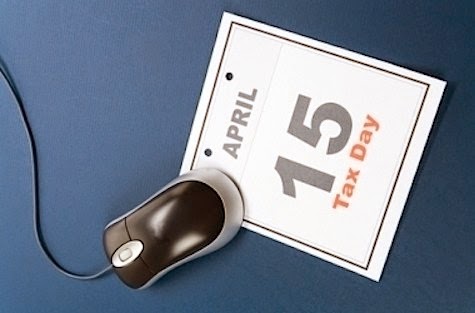It’s the Most Wonderful Time of the Year
Which type of person are you? The one who filed their taxes
in January, got the refund by President’s Day and remind everybody of how nice
it is to have it done? Or the one who scrambles in the days before April 15 to
get everything together and hit “send” just in the nick of time? Perhaps you’re
the one who knows that October 15 is the final, final date when all extensions
expire and aim to file by then. I’m a bit of a hybrid, filing my and my
family’s returns usually in the February / March time frame. Even utilizing
software and being organized, the process is laborious, intrusive and
confusing. And that’s what makes this the most wonderful time of the year!
 Tax Time is when Americans of all stripes most directly
interact with the government. 136,887,000 returns were filed in 2014 with 86% being done so electronically. According to a 2012 Fox News poll 79% of Americans support requiring everyone to pay something in taxes. In 2014
USA Today reported an AP poll that found 58% of Americans describe the filing of taxes as easy and only 38%
say it’s hard. When broken down by economic group those making $100,000 or more
had a higher percentage who found it difficult – 45%. The U.S. tax code started
with 400 pages in 1913 and a century later in 2013 was 73,954 pages. According
to the IRS 90% of taxpayers use a tax professional or software to complete
their return.
Tax Time is when Americans of all stripes most directly
interact with the government. 136,887,000 returns were filed in 2014 with 86% being done so electronically. According to a 2012 Fox News poll 79% of Americans support requiring everyone to pay something in taxes. In 2014
USA Today reported an AP poll that found 58% of Americans describe the filing of taxes as easy and only 38%
say it’s hard. When broken down by economic group those making $100,000 or more
had a higher percentage who found it difficult – 45%. The U.S. tax code started
with 400 pages in 1913 and a century later in 2013 was 73,954 pages. According
to the IRS 90% of taxpayers use a tax professional or software to complete
their return.
Tax Day for LGBT Americans is particularly challenging. APReports that for those people who live in states that do not recognize their marriage
that the couples have to complete 5 tax returns – one federal as married, one
federal for each person as a template to then file one each at the state level
for each person. Divvying up costs and deductions is not only a complicated
mathematical process, it’s emotionally disruptive to have to divide your
married life up because your state doesn’t recognize your relationship.
The U.S. tax code includes a “marriage penalty.” In the progressive rates that are the basis of the U.S. tax philosophy and code,
the more one earns, the more one pays in taxes. So if two people come together
and file jointly, their incomes are combined and they move into a higher
bracket. The code also includes many incentives and deductions to encourage (or
discourage) certain behavior. Politicians want Americans to buy houses (borrowing
money, paying interest, etc.) so there is a large financial benefit for home
ownership. Buy too many houses though – and have them as vacation getaways or
rental properties and that is discouraged with limitations on deductions and
even increased rates.
The priorities of encouraging or discouraging behavior of
the citizenry have been a core function of the tax code and the primary argument
that the political parties have. One wants to raise taxes on one group of
people and redistribute it to others while another wants to reduced taxes to
one group of people and redistribute it to others. It’s in this area where the
divisive political discourse has festered for most of the past several decades.
1986 was the last time the code was “reformed.”
Election Day is held on the first Tuesday in November under
a 1792 Federal law. The reasons included issues of the completion of the harvest and before the harsh winter
weather allowing for most who needed to travel to vote to do so. Most of the
considerations for choosing early November no longer apply, but it’s unlikely
that Election Day will change.
Tax Day hasn’t always been April 15.This date became
effective in 1955 Tech Times reports why: “"According to an IRS spokesman, the move 'spread
out the peak workload,' but there's another explanation. Turns out that as the
income tax applied to more of the middle class, the government had to issue
more refunds. 'Pushing the deadline back gives the government more time to hold
on to the money,' says Ed McCaffery, a University of Southern California law
professor and tax guru."
No matter when Tax Day falls, how government spends taxes is
one of the most contentious issues of our time and politicians have been unable
(or unwilling) to find compromises. Perhaps the easiest way to see how
Americans really feel about paying and filing taxes would be to move Tax Day to
the first Monday in November. The day before Election Day. This Most Wonderful
Time of the Year would be more so when electoral decisions would be directly
related to the one thing that nearly Americans do to interact with the
Government they elect. And let’s make it easy: let’s have the Presidential,
Congressional and Senatorial candidates be the last question of the tax
software before hitting “submit”?



Comments
Post a Comment